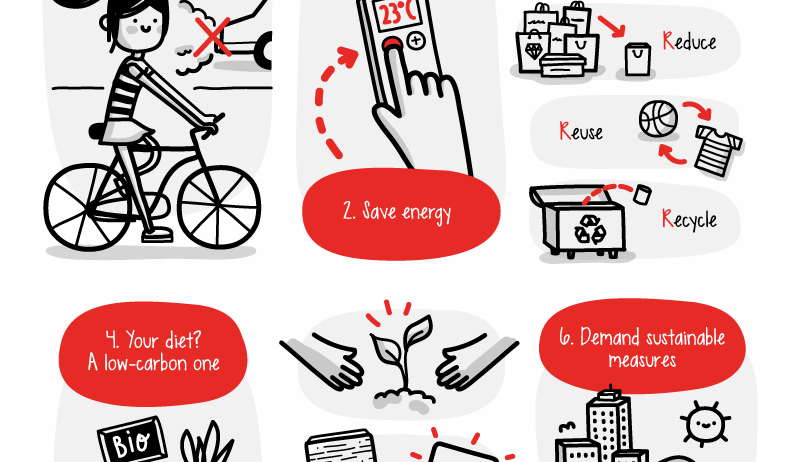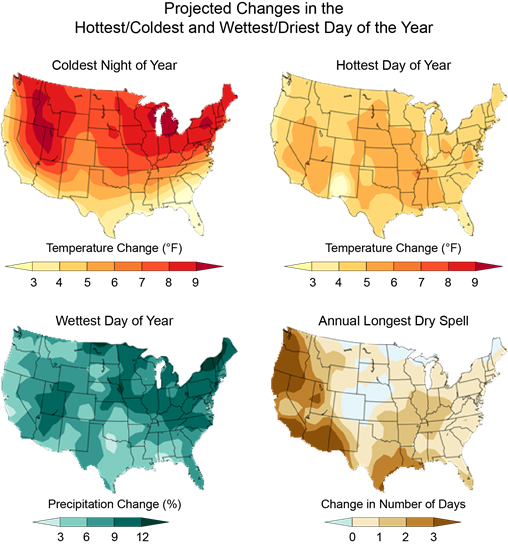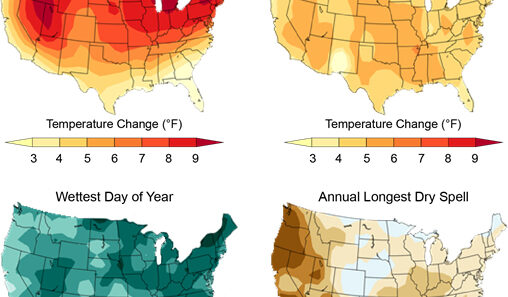The reality of climate change is stark and undeniable. With escalating temperatures, rising sea levels, and erratic weather patterns, the imperative to act becomes more pressing each day. However, the collective responsibility to mitigate this crisis often feels insurmountable. Individuals may grapple with the sentiment that their contributions seem too trivial to effect significant change. Yet, this perspective underestimates the power of human agency in addressing climate challenges. Indeed, tiny actions, when multiplied by millions, can coalesce into a formidable force for sustainability.
First, consider the everyday choices surrounding transportation. Cars, while convenient, contribute significantly to carbon emissions. Transitioning to more sustainable modes of transport can yield substantial environmental benefits. Utilizing public transportation, cycling, or walking for short distances reduces greenhouse gas emissions and alleviates urban congestion. Moreover, organizations promoting carpooling initiatives exhibit the compound effect of reduced vehicular pollution. By fostering a culture of shared transport, communities can alleviate their carbon footprints while enhancing social connectivity.
Yet, transportation is only one facet of our daily lives. Consider the role of energy consumption in the home. The habitual reliance on fossil fuels has led to an alarming escalation in greenhouse gas emissions. Therefore, adopting energy-efficient appliances and refining energy consumption habits represents a straightforward yet impactful approach to combat climate change. Simple actions such as switching off lights when leaving a room or unplugging electronic devices when not in use can collectively yield significant energy savings. In collaboration with municipal programs advocating for renewable energy sources, households can pave the way for a greener future.
Equally important is the practice of mindful consumption. The prevailing consumer culture, characterized by incessant buying and disposability, perpetuates environmental degradation. Thus, opting for sustainable alternatives can drastically reduce one’s ecological footprint. Purchasing locally produced goods diminishes the carbon emissions associated with long-distance transportation. Moreover, prioritizing products with minimal packaging or those made from recycled materials encourages a circular economy. Each purchase is an opportunity to support brands that prioritize the environment, redefining consumerism with sustainability at its core.
In the realm of diet, food choices wield significant influence over climate change. The agricultural sector produces substantial greenhouse gas emissions, primarily from livestock. Transitioning to a plant-based diet, even on a part-time basis, can drastically reduce one’s carbon impact. Implementing “Meatless Mondays,” for instance, serves as an accessible entry point toward dietary reform. Additionally, reducing food waste is critical to combating climate change. Simple measures, such as planning meals to mitigate excess procurement and creatively repurposing leftovers, can minimize waste and its associated carbon footprint.
Adopting a waste-conscious lifestyle not only benefits the planet but also encourages community engagement. Engage in local recycling and composting programs to emphasize the importance of waste reduction. It’s crucial to understand the lifecycle of products and their eventual fate. When individuals prioritize recycling and advocate for composting, they contribute to educational initiatives that bolster community awareness about sustainability.
The integration of sustainable practices into daily routines extends beyond personal habits. Civic engagement plays a pivotal role in advocating for systemic change. Supporting policies that promote environmental responsibility and hold corporations accountable is essential. Joining local environmental organizations or participating in community initiatives amplifies one’s voice. Additionally, it fosters a sense of collective purpose. Popular pressure on governments and businesses can lead to significant policy shifts—an intersection of micro-level actions contributing to macro-level changes.
Furthermore, the digital landscape provides a powerful platform for advocacy. Social media can effectively disseminate information about climate issues and mobilize collective action. Engaging with online campaigns, sharing informative content, and participating in digital activism can galvanize community involvement. The ripple effect of such actions can foster a widespread movement, focusing public attention on critical environmental issues and garnering support for sustainable initiatives.
Education remains an enduring pillar in the fight against climate change. Lifelong learning about environmental issues fosters a well-informed populace capable of making conscientious decisions. Schools, universities, and community organizations should prioritize programs that enhance understanding of sustainability practices. Such a focus cultivates an environmentally literate society that values stewardship and recognizes the intricate connections between human activities and ecological health.
As we dissect the facets of individual actions, it becomes evident that tiny efforts can accumulate into a collective momentum capable of instigating impactful change. The profound truth lies in acknowledging that one person’s actions can inspire others, creating a cascading effect throughout communities and beyond. When individuals embrace sustainable practices, they not only reduce their carbon footprints, but they also serve as beacons of hope and models for change.
In conclusion, combating climate change is not solely the purview of policymakers and corporations; rather, it resides within everyday choices and actions taken by individuals. Tiny actions engender big impacts when viewed through the lens of collective responsibility. Each sustainable decision is a thread woven into the intricate tapestry of environmental stewardship. As humanity confronts the existential threat posed by climate change, it is crucial to harness the power of small, everyday actions to create a greener, more sustainable future. The path toward ecological resilience is paved not merely by grand gestures, but by the quiet persistence of individuals committed to a shared responsibility for our planet. By recognizing the potency of tiny actions and implementing them diligently, we can forge a meaningful pathway to combat climate change daily.








